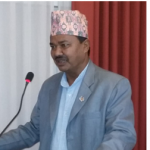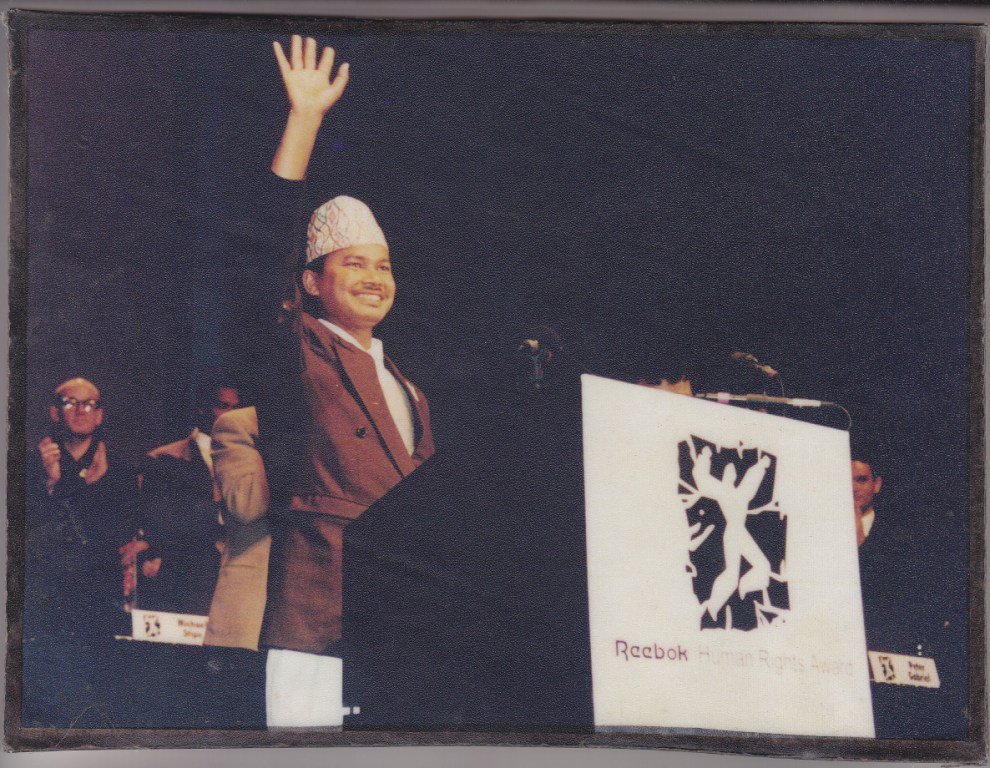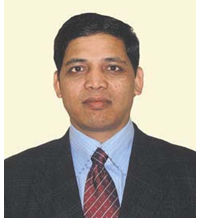Chairperson’s Profile
Dilli Bahadur Chaudhary
Leader of the largest indigenous grassroots movement in the modern history of Nepal
Founder President of BASE (Backward Society Education)
At the age of 17 Dilli Bahadur Chaudhary began his lifetime of work as an organizer for the socially, politically and economically deprived people of Nepal. While focused on the indigenous Tharu living in Nepal’s lowland Terai region, his work has affected the disenfranchised among the various peoples of Nepal and beyond.
In the 1950’s, eradication of malaria in the Terai enabled the movement of better educated hill people into the lands that had been farmed by the Tharu people up until then, and essentially took away their rights to this land. Being illiterate the Tharu were completely vulnerable to this land grab, and what developed was a system of exploitation by new landlords over a people who became bonded slaves, working increasingly into more debt with each generation.
So in 1985 Dilli organized, along with other youth, a club called Misrit Charpate. With a dedicated companionship of Tharu indigenous community youth, Dilli practically forestalled the spirit of grassroots movement in a native model. During the time, they only carried few programs on empowerment, education, community health, livelihood and consciousness-raising. During this period Mr. Chaudhary walked on bare foot around 300 miles for expanding his network in terai land of western Nepal. In this journey, he faced threats of immediate administration and wild life because he walked throughout the thick jungle. With restless efforts made between 1985 to 1990, Mr. Chaudhary was able to unite around 300,000 members in to the organization. Administration of autocratic Panchayat regime had accused him of being traitor at that period.
Their efforts in introducing classes for literacy and income generation, and other advocacy, were recognized by the funders. By 1991 they formalized their efforts by creating BASE (Backward Society Education) which still, today, upholds its vision “first sight on education” with mass coverage in rural and marginalized areas. The literacy rate among Tharu indigenous male and female tremendously increased due to formal and non-formal literacy campaigns led by Mr. Chaudhary. More than 350,000 women, men and children have been literate.
BASE founder president, Mr. Dilli Chaudhary led the Kamaiya (bonded laborer/slaves) movement, and in July 17, 2000 this enormous activist effort led to the outlaw of bonded labor altogether, essentially “freeing” over 200,000 people. These kamaiyas were then socially and economically empowered that has enhanced livelihood status of their children. In spite of difficult circumstances Mr. Chaudhary was able to organize indigenous and marginalized women forming more than 800 saving credit women groups in mid and far west regions. These women have been engaged in income generation activities for economic empowerment.
While today many from this Kamaiya community still have not received promised government support necessary for them to become self-sufficient, the efforts of BASE continue to alleviate their conditions as well as those of other Tharu indigenous and disenfranchised peoples. Unfortunately a version of bonded labor/slave continues to exist as poor families sell their daughters or even pay hustlers to take them off to “a better life.” Sex trafficking of girls and child labor is still a huge challenge that BASE and other NGOs confront. Dilli is Regional Coordinator of Global March, South Asia, which works against exploitation of children.
International recognition of Dilli’s work includes the following awards:
The Ashoka Fellowship Award, USA 1992;The Reebok International Human RIghts Award, USA 1994;The Antislavery International Award, UK 2002;The Ram Krishna Jaidayal Harmony Award, India 2003;Two Nepal Government Awards: Suprabal Gorkha Dakshin Bahu Third 1994; Suprabal Gorkha Dakshin Bahu Trishakti Patta 2004
Currently in the Nepal Government which realized a new constitution, and while state minister in the Ministry of Labor and Employment, Dilli helped bring forth a National Action Plan for the Elimination of Child Labor (2018). He is helping in the creation of a Tharu Museum as well as leading Tharu traditional customary system as a chairperson of customary law leaders of total Tharu population 9,04,054, to preserve this precious traditions and culture, and now, at age 50, he reminds us that there is a long way to go toward protection of marginalized populations through education, elimination of social cultural and economic discrimination, economic development is the major factor that is most essential to sustain livelihood of the marginalized populations which can be done through the promotion of trade and business, physical infrastructural development for water sanitation and hygiene, the ending of child labor and human trafficking, and the creation of a peaceful world.



